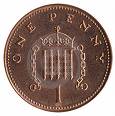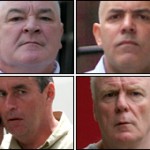Law Weblog
Stop and search powers under Sections 43 and 44 of the Terrorism Act 2000 to continue, despite ECHR ruling
Friday 15 January 2010 at 9:23 pm | In News | Post Comment Judges at the European Court of Human Rights on Tuesday found that the use of anti-terror laws to stop and search people without grounds for suspicion was a breach of their human rights.The ruling was in response to case brought by two people who were searched by police near an arms fair in London’s Docklands in 2003. Their case challenged the police’s right to conduct searches under Section 44 of the Terrorism Act 2000.
But police insisted they would ignore the ruling and that the use of Section 44 would remain in force “in specified locations across London” including major landmarks and “crowded places”.
And Home Secretary Alan Johnson said the government would appeal against the ruling.
“The threat remains real and serious, and stop and search can deter and disrupt terrorist activity and create a hostile environment for terrorists. Protecting the public remains our priority.”
The Conservatives on Wednesday said they would seek to ban the indiscriminate use of counter-terrorism laws by police.
In a unanimous ruling, seven judges said the searches could cause “humiliation and embarrassment” and breached the complainants’ right to respect for their private life under Article 8 of the European Convention on Human Rights.
Journalist Pennie Quinton, 38, and protestor Kevin Gillan, 32, brought the case to the European court after being stopped and searched by police in September 2003 on their way to a demonstration near an arms fair held in east London.
Quinton, who is a journalist, was ordered to stop filming in spite of the fact that she showed her press card, and Gillan was wearing a rucksack and riding a bicycle when he was stopped on his way to the demonstration.
Between 2004 and 2008 the number of searches recorded by the Ministry of Justice went from around 33,000 to over 117,000, it said.
The Jackson Report long-awaited, worth waiting for
Friday 15 January 2010 at 9:16 pm | In News | Post Comment Significant reforms should be introduced to prevent litigation costs from spiralling, Lord Justice Jackson announced this week as he unveiled his long-awaited review into the cost of civil litigation.Jackson LJ who spent a year reviewing rising civil litigation costs, has outlined a series of proposals aimed at increasing competition and thereby reducing fees.
The key recommendations include:
* Success fees and after-the-event insurance premiums should cease to be recoverable in conditional fee arrangements (CFAs)
* Success fees in CFAs should be capped at 25 per cent of damages and awards of general damages raised by 10 per cent
* The use of referral fees should be banned
* A contingency fee model should be introduced, but these must be properly regulated and an independent lawyer should advise on what structure it will take
* Judges, litigators and barristers should receive training on costs budgeting
* A standard costs management procedure should be established
* Increased judicial responsibility for controlling costs
The reforms will hit personal injury practitioners hard, but could also be applied to clinical negligence, judicial review and defamation claims.
“Access to justice is important not only for claimants who have valid claims, but also for defendants who have a valid defence,” Jackson LJ said.
Big ticket litigation will be largely unaffected, although Jackson LJ proposed that disclosure in large commercial cases should be conducted on a ‘menu’ basis.
Lord Chief Justice Lord Judge and Master of the Rolls Lord Neuberger have given their full backing to the Jackson report. Commentators are saying that this excellent report will secure his future in the highest echelons of the judiciary.
Means testing for defendants in The Crown Court
Thursday 14 January 2010 at 7:38 am | In News | Post Comment People acquitted of crimes will not be able to claim back all the legal costs of their defence at five crown courts in England and Wales, starting this week.Means testing in the courts could affect one in four defendants acquitted of serious criminal cases. The Law Society holds the view is that the new regulations are unlawful and successful defendants should be entitled to reasonable compensation for costs they have incurred; they are to challenge the government.
There is now a cap on the amount acquitted defendants can claim back. Under the scheme, defendants who pay for private representation can only be reimbursed at legal aid rates, even though private lawyers often charge more.
There is no cap on the amount prosecutors can claim if defendants are convicted. And prosecutors’ costs can work out at much more than legal aid rates.
Critics hope that the judicial review claim, which has been filed at the high court in London, will lead to the measures being scrapped.
The reforms were brought in following high profile cases of very wealthy defendants quite capable of funding their defence employing very expensive legal teams.
A trial with no jury first for 400 years – next week
Saturday 9 January 2010 at 7:42 am | In News | Post Comment Defence lawyers are preparing to challenge the first criminal trial in England and Wales for 400 years to go ahead without a jury. The case is expected to be heard next week.Lawyers for four men accused of being part of a gang that stole £1.75 million in a raid at Heathrow will seek to adjourn the trial and go before the Supreme Court.
The decision that there should be a judge-only trial was made by the Lord Chief Justice and two other judges in an historic ruling at the Court of Appeal in June after claims of jury nobbling. The jury-less trial is the first of its kind under the provisions contained in the Criminal Justice Act 2003 to prevent jury nobbling. The only other judge-only trials for serious cases, known as Diplock trials, have been in Northern Ireland.
The trial will go ahead before Mr Justice Treacy in the Royal Courts of Justice, rather than a criminal venue such as the Old Bailey,
A series of special arrangements and procedures are being devised for the trial because of the absence of a jury. The judge is expected to follow some of the procedures developed in the Diplock courts. First, the trial is expected to be far shorter and is listed for three months, whereas the last trial to collapse had already run for six months and reached only the end of the prosecution case and the judge will have available before him all the witness statements–juries have no such access.
Although there will not be the huge and costly security arrangements that would have been in place to protect a jury, the judge will probably have enhanced security.
Apple not to blame for hearing loss
Tuesday 5 January 2010 at 1:07 pm | In News | Post Comment The US appeal court ruled that users are responsible for damage to their hearing by listening to music too loudly and not the manufacture of iPods, Apple. Apple has sold 220 million iPods since 2001.Judge David Thompson upheld a 2008 ruling that the iPod was not directly responsible for hearing loss despite users being able to listen to music at a potentially dangerous 115 decibels. He said that the two claimants did not prove that hearing loss was “actual or imminent” when using an iPod.
The claimants argued that the iPod’s earphones were designed to be placed in the ear canal rather than over the ears, increasing the prospect of hearing loss, and that the device lacked any noise-isolating or cancelling properties.
The claimants proved that the iPod could be used in a risky way, but that was a choice for the user, effectively placing the burden of responsibility for any hearing loss on consumers.
£15 extra on car fines to help victims of crime
Saturday 2 January 2010 at 5:02 pm | In News | Post Comment Drivers who are found guilty of minor motoring offences face a £15 surcharge to help victims of domestic violence and other violent crime.The new tax was announced before Christmas in a Parliamentary answer. The “victims’ surcharge” will be added to fixed penalty tickets given out by police and not just those fined in court.
The Domestic Violence, Crime and Victims Act 2004 provides for a surcharge to be payable and for the money collected to be used for domestic violence victims.
The minimum fine of £60 for speeding or not wearing a seat belt will rise to £75. And a “penalty notice for disorder” rises from £80 to £95.
The victims’ surcharge was introduced in April 2007. and in two years raised more than £6.6 million.
World’s smallest nativity scene
Wednesday 30 December 2009 at 12:21 pm | In News | Post Comment An Italian craftsman has created the world’s smallest nativity scene – on the head of a pin. Aldo Caliro sculpted tiny hand carved figures of the Virgin Mary, Joseph, and an angel together with a tiny baby jesus in his crib.The whole scene fits on the top of the pin that was then mounted on a piece of velvet surrounded by a halo of diamonds that dwarf the figures.
Low Copy Number DNA approved by Court of Appeal
Thursday 24 December 2009 at 9:16 am | In News | Post Comment Low Copy Number (LCN) DNA testing had been suspended since the judge in an Omagh bombing case questioned its validity in 2007.The Home Office carried out a review of its applicability for court purposes and in 2008, which concluded that it was scientifically robust and therefore appropriate for court cases.
This week the Court of Appeal upheld the convictions of two brothers Terry and David Reed who were convicted of murder in 2007.
The court said challenges to the science behind Low Copy Number (LCN) DNA testing should no longer be permitted in most trials.
The Court of Appeal rejected evidence from a former senior scientist with the FBI who had said that results using the LCN method should not be put before a jury.
Whole case here
Sentencing – Probation Service and the effect of a release on licence
Wednesday 23 December 2009 at 5:05 pm | In News | Post Comment The full effect of early release on licence from prison has been discovered by former Culture Club singer Boy George who failed in judicial review proceedings in the High Court to overturn a Probation Service ban preventing him appearing in the final series of “Celebrity Big Brother”.The singer – real name George O’Dowd – served time in prison for handcuffing male escort Audun Carlsen to a wall in his London home in April 2007, but was released early.
Mr Justice Bean said,
“I consider that right-thinking members of the public would take the view that an offender serving the non-custodial part of a sentence of imprisonment should not be allowed to take part in a high profile, controversial television production, promoting his status as a celebrity and with considerable financial gain.”
Full judgment here
Convict claimed the word ‘prisoner’ breached his human rights
Sunday 20 December 2009 at 8:13 am | In News | Post CommentA violent prisoner tried to sue a volunteer jail worker for not calling him ‘Mr’.
Bernard Pennington, who is serving a life sentence for a machete attack on his wife claimed the term ‘prisoner’ was derogatory and a breach of his human rights.
He tried to sue David Luckett, voluntary chairman of the Independent Monitoring Board, which checks up on day-to-day life at Kingston Prison in Portsmouth, for £300. The case cost the tax payer £6,000,
Mr Luckett, who is also a magistrate, had referred to him as ‘prisoner Pennington’ in a letter after the convict made a complaint to the board about his treatment Mr Lucket resigned his post after 13 years of volunteering.
But District Judge Peter Jolly threw the case out at Portsmouth County Court, saying there was ‘no merit’ to the complaint.
Pennington, 63, who was jailed for nearly killing his wife Jessie in 1984, did not attend the hearing, despite a bus being laid on to drive him from Parkhurst prison on the Isle of Wight where he is now held.
The judge said, “This case is totally without merit. There are no reasonable grounds for Mr Pennington to bring this case.
Had I not struck it out on that basis I would have struck it out on the grounds of non attendance or I would have struck on the grounds of abuse of process.”
Powered by WordPress with Pool theme design by Borja Fernandez.
Entries and comments feeds.
Valid XHTML and CSS. ^Top^









